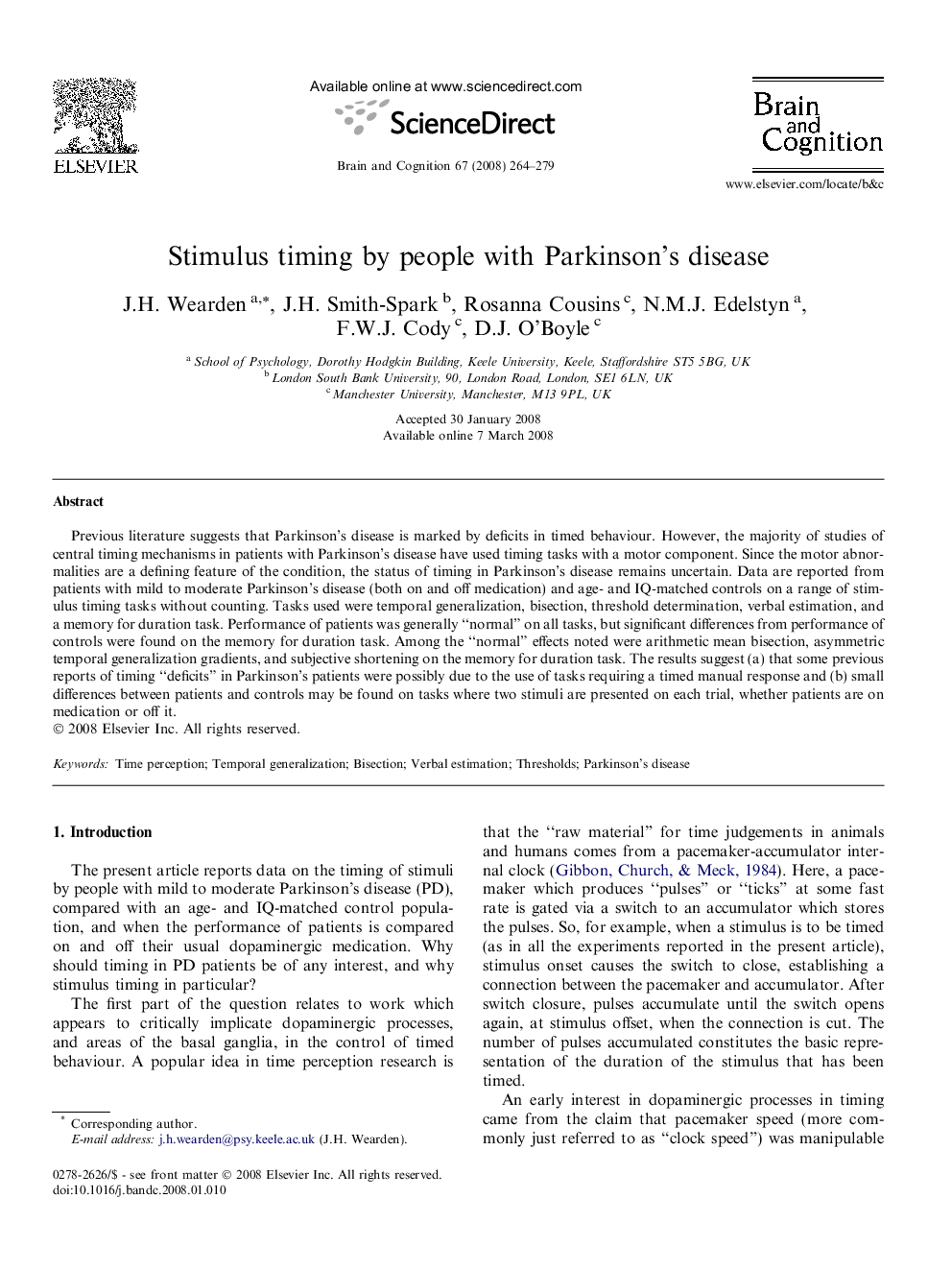| Article ID | Journal | Published Year | Pages | File Type |
|---|---|---|---|---|
| 924499 | Brain and Cognition | 2008 | 16 Pages |
Previous literature suggests that Parkinson’s disease is marked by deficits in timed behaviour. However, the majority of studies of central timing mechanisms in patients with Parkinson’s disease have used timing tasks with a motor component. Since the motor abnormalities are a defining feature of the condition, the status of timing in Parkinson’s disease remains uncertain. Data are reported from patients with mild to moderate Parkinson’s disease (both on and off medication) and age- and IQ-matched controls on a range of stimulus timing tasks without counting. Tasks used were temporal generalization, bisection, threshold determination, verbal estimation, and a memory for duration task. Performance of patients was generally “normal” on all tasks, but significant differences from performance of controls were found on the memory for duration task. Among the “normal” effects noted were arithmetic mean bisection, asymmetric temporal generalization gradients, and subjective shortening on the memory for duration task. The results suggest (a) that some previous reports of timing “deficits” in Parkinson’s patients were possibly due to the use of tasks requiring a timed manual response and (b) small differences between patients and controls may be found on tasks where two stimuli are presented on each trial, whether patients are on medication or off it.
